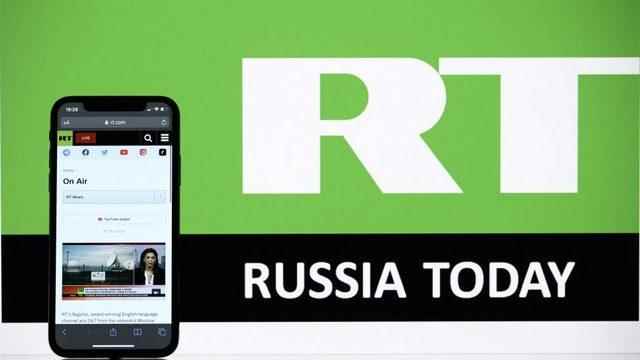Internet providers, journalism, press freedom and civil rights organizations in the Netherlands applied to the European Court of Justice for the European Union’s ban on Russian state media under sanctions.
According to Dutch organizations, this decision by government leaders is against both freedom of the press and Dutch law.
Within the scope of the sanctions package prepared by the EU Commission after Russia’s invasion of Ukraine, it was decided to ban Russian public broadcasters RT and Sputnik across Europe.
EU Foreign Policy High Representative Josep Borrell said in a statement after the decision, “The Kremlin’s systematic manipulation of information and disinformation is an active tool in the attack against Ukraine. Today we are taking the first and important step against Putin’s manipulation.”
In the 6th sanction package adopted by the Commission earlier this week, Russian channels Rossija 24, RTR Planeta and TV Center broadcasts were banned.
Three important internet companies in the Netherlands, BIT, A2B Internet and Freedom Internet, decided to apply to the Court of Justice, the highest judicial body of the EU, arguing that this decision was against the law.
The Dutch Journalists’ Association (NVJ), the Freedom of the Press Fund and the civil rights organization Bits of Freedom also announced their support for this case.
Freedom Internet’s CEO, Anco Scholte ter Horst, told Dutch media that the EU’s decision was “disproportionate” and opened the door to bans.
Scholte ter Horst emphasized that the ban decision is “a danger to the free internet”.
According to Dutch companies, the banning of Sputnik and RT negatively affects the net neutrality of internet providers.
According to the companies, “net neutrality” as defined in the Dutch Telecommunications Law means that internet providers are not allowed to interfere with the content of internet data.
Therefore, providers may not unnecessarily restrict or block access to certain data.
Thomas Bruning, Secretary General of the Dutch Journalists’ Association (NVJ), said that it is not the job of government leaders to determine what can and cannot be found on the Internet, and evaluated the ban on Russian media as “an attitude that undermines the foundations of a free press”.
“We are not fans of RT and Sputnik,” Burning said.
“But if government leaders can independently ban information, it affects the democratic constitutional state as a whole. By banning, you are preventing anyone, including scientists and journalists, from requesting that information.”
Bruning stressed that in a constitutional state, disinformation should not be fought against censorship.
The Moscow government considered the banning of Russian state media in Europe as an attack on press freedom.
After this decision, the Kremlin administration announced that some western broadcasting organizations had banned their activities in Russia.
